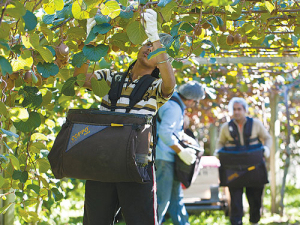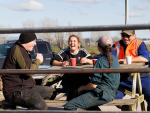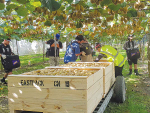Industry input is welcome as the government reviews the Recognised Seasonal Employer (RSE) system this year.
“The Government [plans to] improve the RSE system to ensure it remains responsive to the needs of New Zealand industry and the Pacific.... Consultation with industry will be an important part of assessing any future policy development for the RSE scheme,” Minister for Immigration Iain Lees-Galloway told Rural News in response to issues raised by the apple industry.
“The horticulture and viticulture industries have experienced significant growth in recent years. Industry reports say that since 2015, apple and kiwifruit orchards have increased in value by about 70% each and the 2018 wine vintage was 2.6% larger than the previous year.
“However this growth has been accompanied by labour shortages across industries and regions, notably in the past year. This is expected to continue, with growers forecasting 2600 more workers are needed to help support the industry.”
The Government, through Immigration NZ, Ministry of Social Development (MSD) and economic development agencies, will work with industries to help meet labour shortages, Lees-Galloway says.
“While it’s important the industry is able to access RSE workers in peak season, it’s equally important they keep their commitment to employing NZers. MSD will continue to grow industry partnerships with horticulture businesses that are providing training and jobs for NZers and grow a more skilled domestic workforce.”
Last November, the Government increased the RSE cap by 1750 to 12,850 to provide labour for the horticulture and viticulture industries, he says.
“NZ’s RSE scheme is a ground-breaking initiative introduced by the previous Labour Government in 2007, helping meet labour shortages in important industries while providing economic support to our Pacific neighbours.”



















